Related Research Articles
The Methodist Episcopal Church (MEC) was the oldest and largest Methodist denomination in the United States from its founding in 1784 until 1939. It was also the first religious denomination in the US to organize itself nationally. In 1939, the MEC reunited with two breakaway Methodist denominations to form the Methodist Church. In 1968, the Methodist Church merged with the Evangelical United Brethren Church to form the United Methodist Church.
The Methodist Episcopal Church, South was the American Methodist denomination resulting from the 19th-century split over the issue of slavery in the Methodist Episcopal Church (MEC). Disagreement on this issue had been increasing in strength for decades between churches of the Northern and Southern United States; in 1845 it resulted in a schism at the General Conference of the MEC held in Louisville, Kentucky.
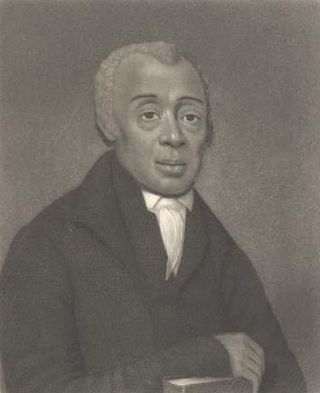
Richard Allen was a minister, educator, writer, and one of the United States' most active and influential black leaders. In 1794, he founded the African Methodist Episcopal Church (AME), the first independent Black denomination in the United States. He opened his first AME church in 1794 in Philadelphia.
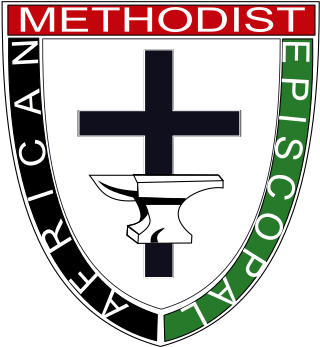
The African Methodist Episcopal Church, usually called the AME Church or AME, is a Methodist Black church. It adheres to Wesleyan-Arminian theology and has a connexional polity. The African Methodist Episcopal Church is the first independent Protestant denomination to be founded by black people; though it welcomes and has members of all ethnicities.

Charles (Alexander) Force Deems was an American Methodist minister. He was the pastor of the non-denominational Church of the Strangers in New York City from 1868 to 1893.
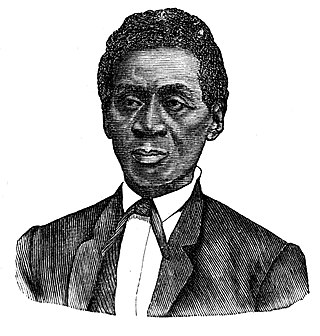
Samuel Green was a slave, freedman, and minister of religion. A conductor of the Underground Railroad, he was tried and convicted in 1857 of possessing a copy of the anti-slavery novel Uncle Tom's Cabin by Harriet Beecher Stowe following the Dover Eight incident. He received a ten-year sentence, and was pardoned by the Governor of Maryland Augustus Bradford in 1862, after he served five years.
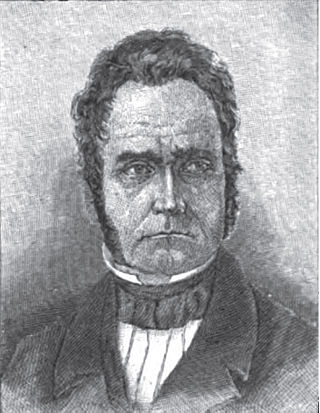
Henry Bidleman Bascom (1796–1850) was an American Bishop of the Methodist Episcopal Church, South, elected in 1850. He also distinguished himself as a circuit rider, pastor and Christian preacher; as chaplain to the U.S. House of Representatives; and as an editor, a college academic, and a denominational leader.

John Christian Keener was an American bishop of the Methodist Episcopal Church, South, an author and an editor, and the superintendent of C.S.A. Chaplains west of the Mississippi River during the American Civil War. He wrote several books on theology and edited the New Orleans Christian Advocate, a weekly Methodist newspaper sponsored by Methodist conferences in Louisiana and various nearby states in the late-19th and early-20th century. A collection of Keener's papers, available at the Stuart A. Rose Manuscript, Archives, and Rare Book Library at Emory University, include correspondence and military orders related to the return of property to the Methodist Church, South, after the war.

The Vanderbilt Divinity School and Graduate Department of Religion is an interdenominational divinity school at Vanderbilt University, a major research university located in Nashville, Tennessee. It is one of only six university-based schools of religion in the United States without a denominational affiliation that service primarily mainline Protestantism.
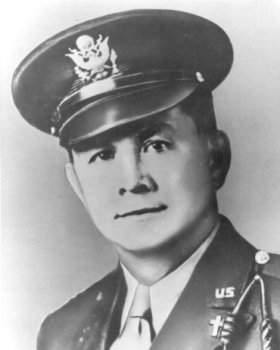
George Lansing Fox was a Methodist minister and a lieutenant in the United States Army. He was one of the Four Chaplains who gave their lives to save other soldiers during the sinking of the troop transport Dorchester during World War II.

Jesse Lee was an American Methodist Episcopal clergyman and pioneer, born in Prince George's County, Virginia. A preacher after 1783, in 1789 he visited New England and established Methodism from the Connecticut River to the farthest settlement in Maine. He formed the first Methodist class in New England, at Stratford, Connecticut, September 26, 1787. He preached his first sermon (outdoors) on June 7 or 17, 1789 in Norwalk, Connecticut. He held the first Methodist class in Boston, Massachusetts on July 13, 1792. For his pioneer work in New England he was often called the Apostle of Methodism. He was a friend of Francis Asbury, and served as his assistant from 1797 to 1800. He lacked only one vote of being elected Bishop by the General Conference of 1800, but was appointed to be a presiding elder of the south district of Virginia in 1801. He wrote A Short Account of the Life and Death of the Rev. John Lee (1805) and a History of Methodism in America (1807), which has value for the early period. On May 22, 1809, Lee was appointed Chaplain of the United States House of Representatives He was reappointed on November 2, 1812, and served for two sessions. Upon leaving the chaplaincy of the House he was appointed Chaplain of the United States Senate on September 27, 1814, where he served until December 1815.

John McKendree Springer was an American bishop of the Methodist Episcopal Church and The Methodist Church, elected in 1936. He was also a pioneering missionary instrumental in developing Methodism on the continent of Africa.
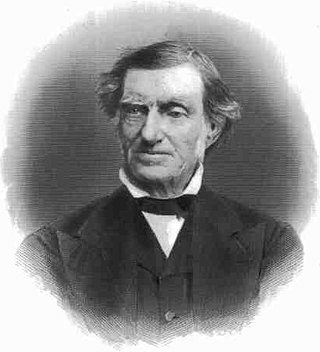
Thomas Kelso was an Irish-American philanthropist and businessman, who was born in Clones, a market town in the north of Ireland, August 28, 1784. He died on the morning of July 26, 1878 at his home of many years on East Baltimore Street in Baltimore, Maryland, at the age of 94.
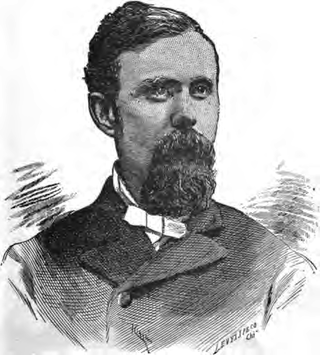
Thomas Van Scoy was an American minister and educator in Indiana, Oregon, and Montana. A Methodist, he served as the sixth president of Willamette University and as president of the now defunct Portland University. He was also president of Montana Wesleyan University and served in the militia at the end of the American Civil War.

Nicholas Snethen was an American farmer, itinerant preacher, minister, and church leader.

Henry McNeal Turner was an American minister, politician, and the 12th elected and consecrated bishop of the African Methodist Episcopal Church (AME). After the American Civil War, he worked to establish new A.M.E. congregations among African Americans in Georgia. Born free in South Carolina, Turner had learned to read and write and became a Methodist preacher. He joined the AME Church in St. Louis, Missouri, in 1858, where he became a minister. Founded by free blacks in Philadelphia, Pennsylvania, in the early 19th century, the A.M.E. Church was the first independent black denomination in the United States. Later Turner had pastorates in Baltimore, Maryland, and Washington, DC.
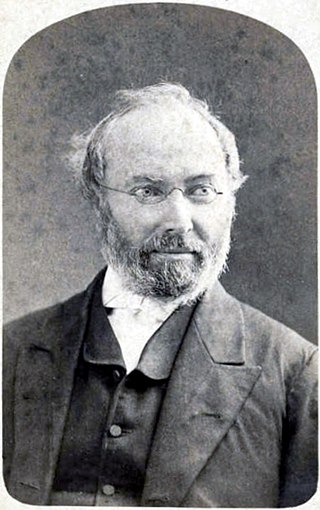
Thomas OsmondSummers was an English-born American Methodist theologian, clergyman, hymnist, editor, liturgist and university professor. He is considered one of the most prominent Methodist theologians of the nineteenth century.
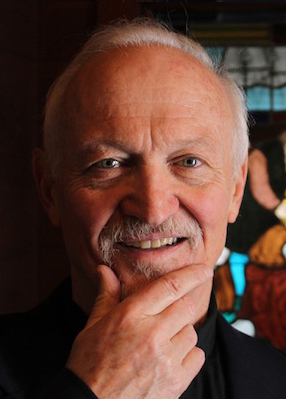
David John Bird is dean emeritus of the historic Trinity Episcopal Cathedral, the oldest church structure in continuous use in San Jose. He is a parish priest who reads and writes poetry and is particularly fond of Alfred Lord Tennyson. As a theologian, he emphasizes a liberal, compassionate, and inclusive approach and is devoted to ecumenism. Bird promotes Christian unity and is published in this field; since 2002, he has served on the national Committee of The Episcopal Church-United Methodist Church Dialogue.

Eugene Allen Noble was an American academic and Methodist minister. He served as president of three institutions: Centenary University from 1902 to 1908, Goucher College from 1908 to 1911, and Dickinson College from 1911 to 1914. He was also an administrator at the Juilliard School.
Susan Rigby Dallam Morgan was an American author and poet.
References
- ↑ "Morgan State University - Brief History of Morgan State University". Morgan.edu. Archived from the original on 2009-06-21. Retrieved 2013-12-27.
- ↑ "Susan Morgan (Poe people)". Poe Society. Retrieved 2011-07-27.
- ↑ "History of the Chaplaincy". Chaplain, U.S. House of Representatives. Retrieved 2011-07-27.
- ↑ "Morgan State University". Maryland State Archives. Retrieved 2011-07-27.
